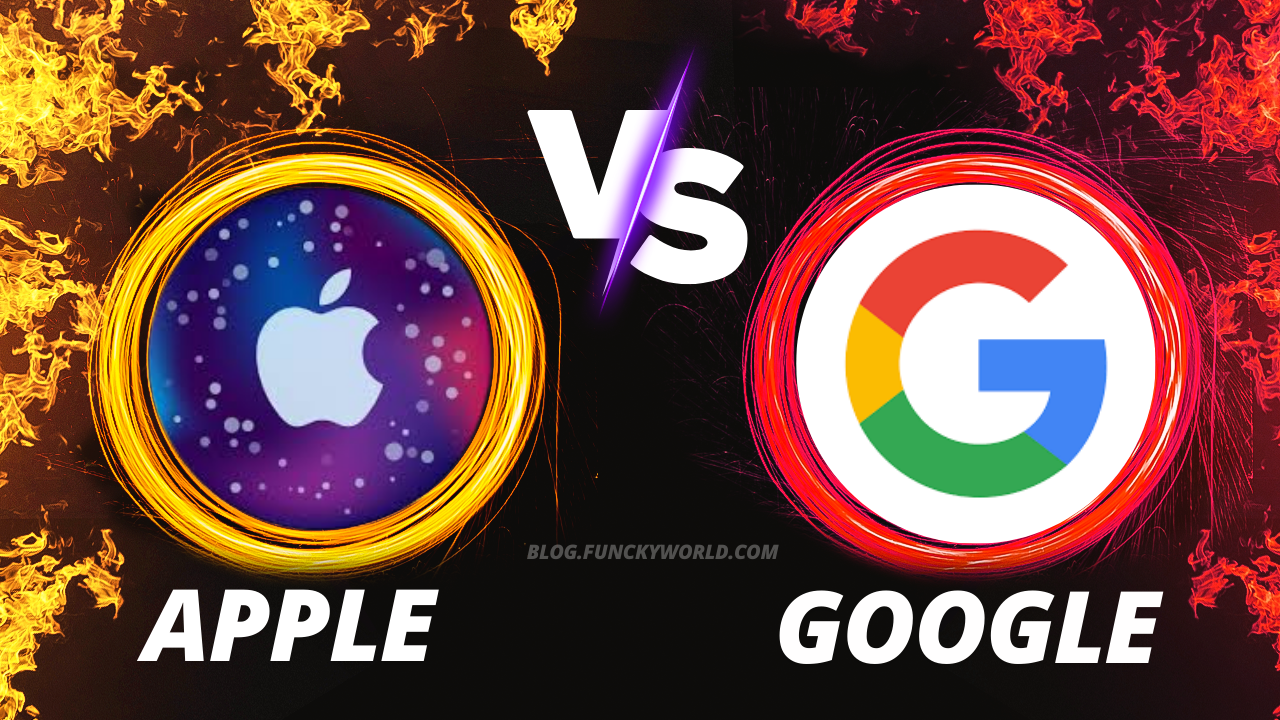
Apple vs. Google: Company Details and Network Valuation
In the technology sector, few rivalries are as compelling as that between Apple and Google. Both companies have significantly shaped the digital landscape, influencing everything from mobile devices to software ecosystems. This article explores the histories, business models, and network valuations of Apple and Google, providing a comprehensive look at these two tech titans.
Company Overview
Apple Inc.
Founded in 1976 by Steve Jobs, Steve Wozniak, and Ronald Wayne, Apple has become synonymous with innovation and premium technology products. Headquartered in Cupertino, California, Apple is known for its consumer electronics, software, and online services. The company revolutionized personal computing with its Macintosh computers and later transformed the mobile phone industry with the iPhone.
Key Products and Services
- iPhone: Launched in 2007, the iPhone redefined smartphones with its intuitive design and ecosystem integration.
- Mac: Apple’s line of computers, including MacBook laptops and desktop systems, is favored by creative professionals for their performance and design.
- iPad: This tablet has become a versatile tool for both personal and professional use, popular among various demographics.
- Apple Watch: Expanding into wearables, the Apple Watch focuses on health and fitness tracking.
- Services: Apple has increasingly shifted focus to services such as Apple Music, iCloud, and the App Store, contributing significantly to its revenue.
Alphabet Inc. (Google)
Founded in 1998 by Larry Page and Sergey Brin while they were Ph.D. students at Stanford University, Google started as a search engine and has since evolved into a global technology leader. Alphabet Inc. is Google’s parent company, established in 2015 to streamline its various ventures. Headquartered in Mountain View, California, Google is primarily known for its search engine but has expanded into numerous sectors, including advertising, cloud computing, and hardware.
Key Products and Services
- Google Search: The world’s leading search engine, Google Search processes billions of queries daily, making it a staple for online information retrieval.
- Android: The most widely used mobile operating system, Android powers a vast array of devices from various manufacturers.
- YouTube: Acquired by Google in 2006, YouTube has become the dominant platform for video content sharing and streaming.
- Google Cloud: This service offers cloud computing solutions, competing with Microsoft Azure and Amazon Web Services.
- Hardware: Google has entered the hardware market with products like the Pixel smartphones, Google Nest smart home devices, and Chromebooks.
Business Models
Apple’s Business Model
Apple’s business model centers around premium products and a closed ecosystem. By controlling both hardware and software, Apple creates a seamless user experience that encourages brand loyalty. The company maintains high margins on its products, positioning itself in the luxury segment of the market.
Additionally, Apple’s shift towards services has allowed it to diversify its revenue streams. Services now account for a significant portion of its total revenue, providing recurring income from subscriptions and digital content.
Google’s Business Model
Google operates primarily on an advertising-based revenue model. The majority of its income comes from ads displayed across its platforms, notably Google Search and YouTube. This model benefits from vast amounts of user data, enabling highly targeted advertising.
However, Google has also invested heavily in cloud computing and hardware, seeking to reduce dependency on advertising revenue. Its diversification into various sectors, including artificial intelligence and autonomous vehicles, illustrates its commitment to innovation and growth.
Network Valuation
Apple’s Valuation
As of late 2023, Apple has consistently ranked as one of the most valuable companies in the world, with a market capitalization often exceeding $2.5 trillion. Factors contributing to its high valuation include:
- Strong Brand Loyalty: Apple’s dedicated customer base remains willing to pay a premium for its products.
- Robust Financial Performance: Apple consistently reports strong revenue and profit growth, particularly in its services segment.
- Innovative Ecosystem: The seamless integration of Apple’s devices and services encourages customer retention and increases lifetime value.
Google’s Valuation
Alphabet Inc., Google’s parent company, also boasts a market capitalization in the range of $1.5 trillion to $2 trillion. Key elements influencing its valuation include:
- Dominance in Online Advertising: Google holds a substantial share of the digital advertising market, benefiting from the proliferation of online content and e-commerce.
- Diverse Revenue Streams: With growing contributions from Google Cloud and hardware sales, Alphabet is less reliant on advertising than in the past.
- Innovation and Growth Potential: Investments in AI, machine learning, and emerging technologies position Google for future growth, attracting investor interest.
Comparative Analysis
Market Position
Apple is positioned as a premium brand with a focus on high-quality hardware and an integrated ecosystem. In contrast, Google leverages its dominance in search and advertising while expanding its portfolio into various sectors, including cloud services and hardware.
User Experience
Apple’s user experience is characterized by its cohesive ecosystem, where devices and services work together seamlessly. Google, however, emphasizes accessibility and integration across platforms, offering services that are compatible with various operating systems.
Financial Performance
Both companies report strong financials, but their revenue sources differ significantly. Apple relies on product sales and a growing services segment, while Google generates most of its revenue from advertising, supplemented by cloud and hardware sales.
Conclusion
The rivalry between Apple and Google encapsulates the broader evolution of technology, innovation, and consumer behavior. Both companies have built substantial networks with unique business models and revenue streams, influencing how people interact with technology daily.
While Apple’s focus on premium products and brand loyalty positions it as a leader in consumer electronics, Google’s dominance in online search and advertising, coupled with its expanding portfolio, secures its place as a powerhouse in the digital landscape. As both companies continue to innovate and adapt to changing market dynamics, their influence on the tech industry will undoubtedly persist, shaping the future of technology for years to come.



Leave a Reply